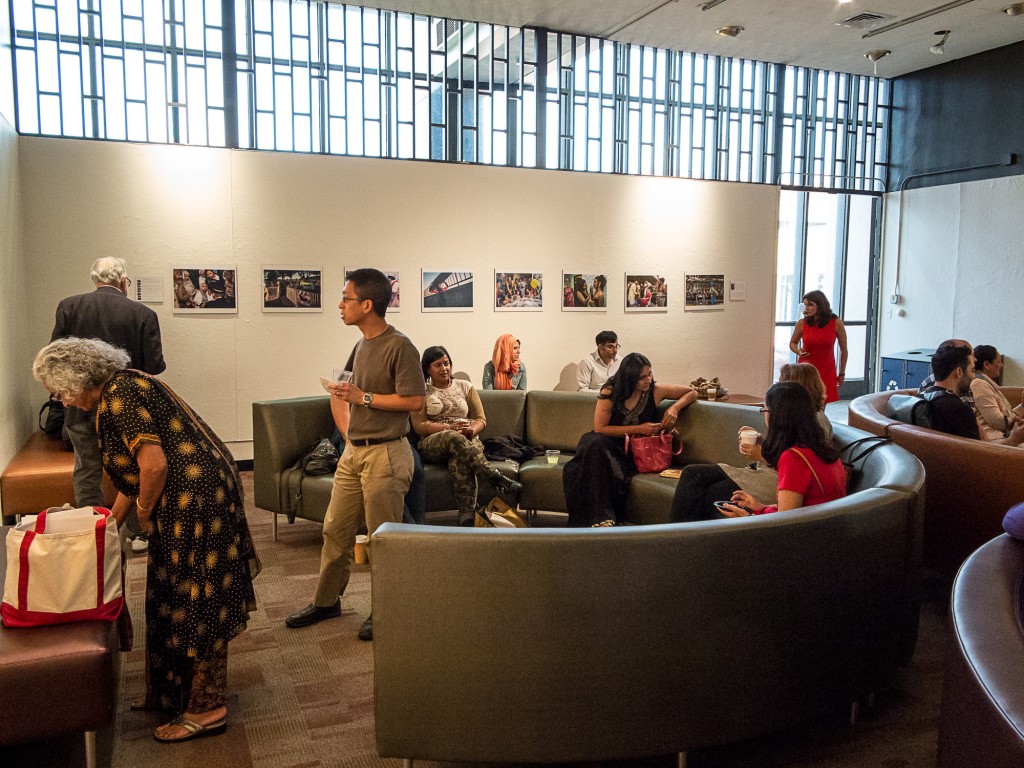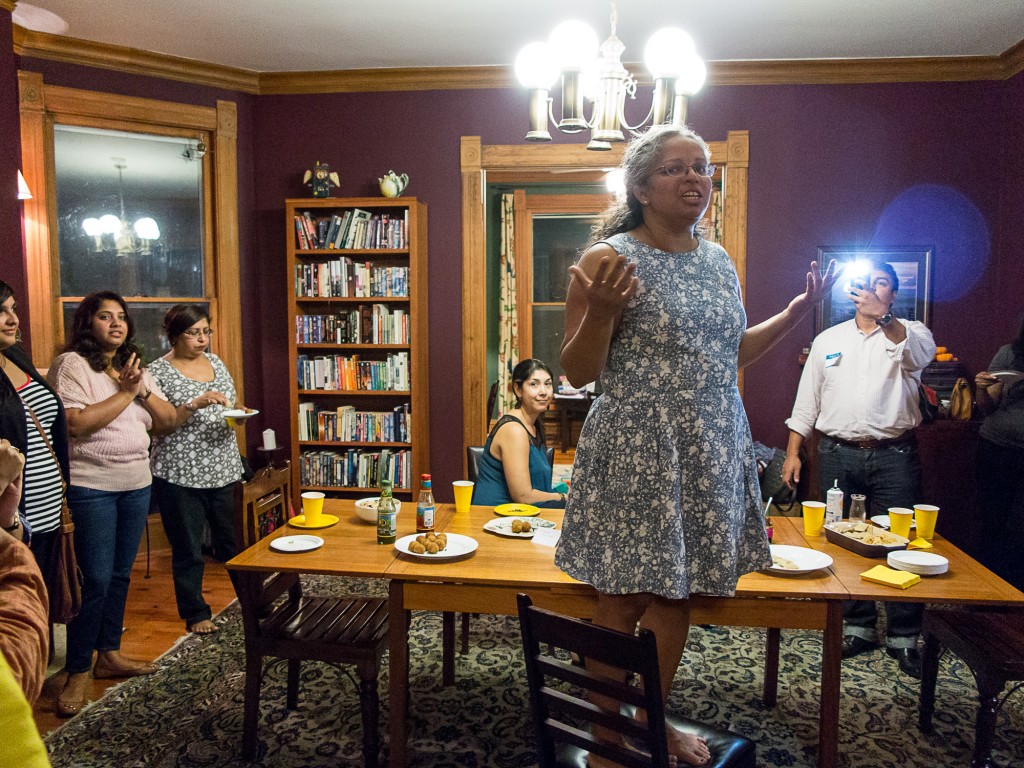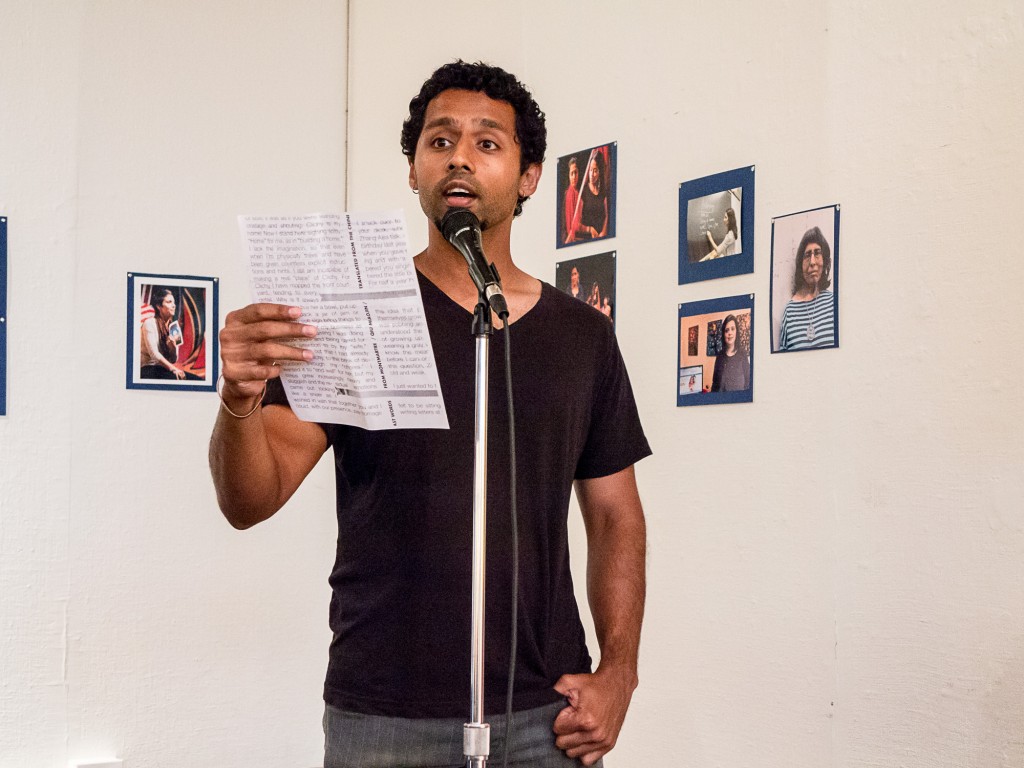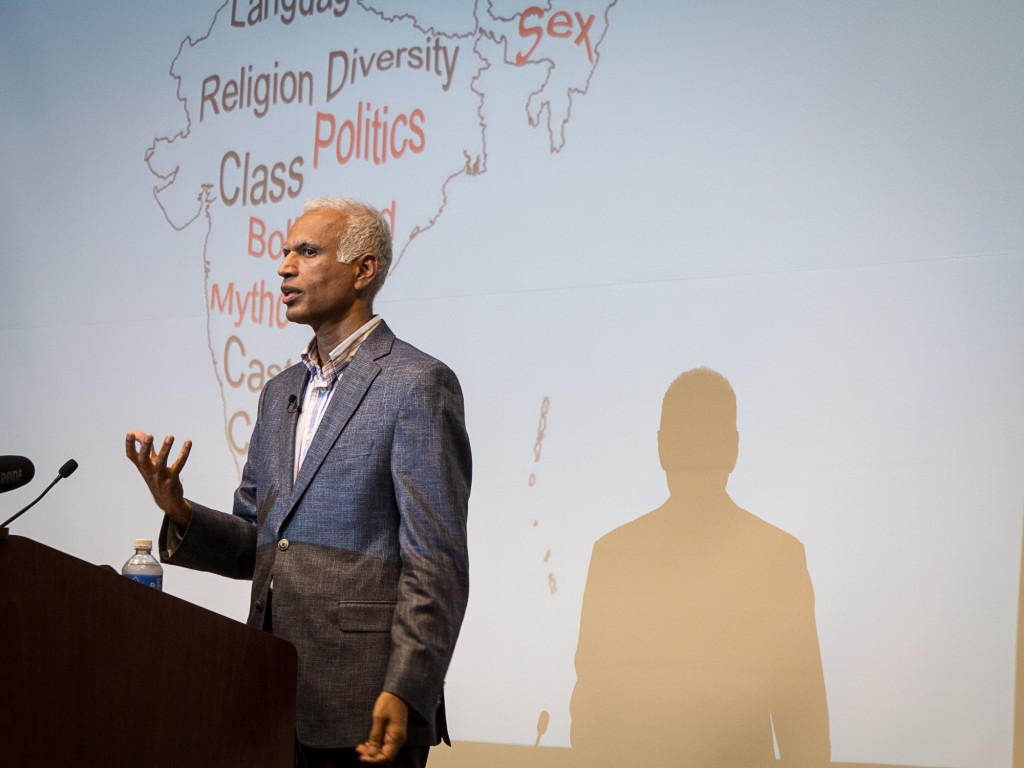Close to 100 South Asian and diaspora writers and artists, including the two writers of this article, converged on the University of Illinois (UIC) Chicago campus for the 2014 Kriti Festival on September 25. Back after a hiatus for its fourth installment, the festival is a celebration of South Asian and diaspora arts and literature. The driving force behind it is Mary Anne Mohanraj, a Sri Lankan American writer, professor of fiction and literature, and former associate coordinator of Asian and Asian American Studies at UIC.

The Kriti Festival, which takes its name from the Hindi word for “creation,” is jam packed with panels, readings, and dance, musical, comedic, and theatrical performances, which showcase South Asian and Diaspora arts and literature in all their diverse glory.
One of the perpetual highlights of the festival is a reading and talk by a well-known guest of honor author of South Asian/Diaspora origin. Past years’ guest of honor authors have included Chitra Banerjee Divakaruni, Anita Desai, Romesh Gunesekara, Amitava Kumar, and Bapsi Sidhwa. This year, Manil Suri regaled participants with his words and pyrotechnic PowerPoint stylings. Suri is the author of the trilogy: The Death of Vishnu, The Age of Shiva, and The City of Devi. There were many other literary highlights but particularly noteworthy was Nayomi Munaweera‘s reading from her novel, Island of A Thousand Mirrors on the very day that it was featured in The New York Times Book Review.
But the Kriti Festival was not just concerned with the written word. It also provided a platform for performing and visual artists. The audience was treated to performances by emerging musicians, dancers, and comedians. The highlight of these performances was Fawzia Mirza’s one-woman play, Me, My Mom, and Sharmila. Based on her experiences growing up in Canada to immigrant parents from Pakistan — her chic and modern mother took solace in conservative faith when her father died — Fawzia weaves her fascination with Bollywood icon Sharmila Tagore (“Bollywood — that sounds like a pattern at Crate and Barrel”) with her conflicted upbringing as a young lesbian woman in a Muslim household.
The festival screened films and featured photography and other forms of visual art, including an exhibit by Preston Merchant and panels produced by the South Asian American Policy & Research Institute describing the lives of the pioneer South Asian immigrants in Chicago, who arrived some fifty years ago.
Beyond a focus on the works of individual artists and writers, the Kriti Festival fostered connections and dialogue between South Asian and diaspora artists. Robust discussions took place about the sociocultural taboos of writing about sex or “airing dirty laundry” and on a practical level, the paths to publication and transitioning into a career in the arts.
As we ran back and forth between the dizzying number of sessions and events, it was not unusual to see pockets of participants continuing these conversations over a cup of coffee. Just as its name suggests, the Kriti Festival is about creativity, but just as importantly, it’s about community.

![Roshani Anandappa, Samanthi Hewakapuge, Shikha Malaviya, Neha Misra, and Arvind Venugopal enjoy the hospitality [photo by Preston Merchant]](http://theaerogram.com/wp-content/uploads/2014/10/kritifestival-2514-merchant-1024x768.jpg)


![Young adult fiction author Rajdeep Paulus alternatives to traditional publishing with editor Diana Pho, novelist Anjali Mitter Duva, and Mary Anne Mohanraj [photo by Preston Merchant].](http://theaerogram.com/wp-content/uploads/2014/10/kritifestival-2531-merchant-1024x768.jpg)
![Artist Swati Khurana takes text messages from people's phones, inscribes them on a scroll, and ties them with red thread [photo by Preston Merchant]](http://theaerogram.com/wp-content/uploads/2014/10/kritifestival-2561-merchant-1024x768.jpg)
![Actor. writer, and educator Fawzia Mirza discusses queer issues in South Asian literature [photo by Preston Merchant]](http://theaerogram.com/wp-content/uploads/2014/10/kritifestival-2676-merchant-1024x768.jpg)
After 15 years developing and leading innovative programs in the social change sector, Kavita Das now serves as a nonprofit consultant and writes nonfiction and creative nonfiction. Connect with Kavita on Twitter @kavitamix.












